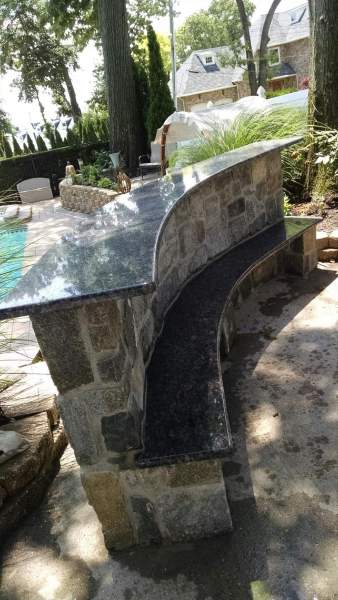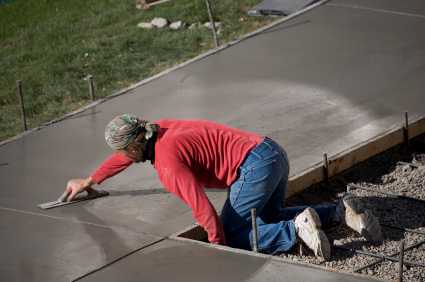
How To Care For Concrete During Winter Months

If you live in New Jersey, you know that snow, ice and freezing temperatures can have an effect on many aspects of your exterior hardscaping and landscaping features, including anything made from concrete. Many residential and commercial properties use concrete for a variety of outdoor applications, from driveways and parking lots to walkways, patios and retaining walls.
No matter where this material may be used on your property, it can be impacted by winter weather, as wellas any steps we take to rid our properties of snow and ice. There’s no doubt that the material is extremely durable and will hold up well over time, and it is a good material choice for locales that experience winter weather conditions (including areas that experience even more extreme weather than what we typically see in New Jersey), but there are some steps you can take to better ensure that your surfaces hold up well even when temperatures dip and snow and ice fall.
Most damage to concrete surfaces happens during the winter months. This isn’t simply because temperatures are cold but because of the combination of low outdoor temperatures combined with moisture. Any moisture that is able to seep in or near concrete will expand when it freezes, which can cause the material to crack or buckle. Another culprit is how we remove snow and ice from the surface, and depending on what we do, we can inadvertently cause damage to the surface or weaken the structure.
So the first thing you should do to care for your concrete surfaces throughout the winter is to keep water and moisture away as best you can. This can be done by filling any joints with a flexible caulking material that will expand, fill the joints and prevent moisture from getting under the surface. You should also make sure that any gutters and downspouts are situated properly so they whisk water away from surfaces, rather than allowing it to pool around your driveway, walkway, patio or other areas.
Another way to protect your surface from water penetration is by applying a sealer, which must be re-applied periodically but is one of the best ways to extend the life of your concrete. This sealer is best applied during the fall, around September or October, and will minimize the amount of moisture that can penetrate into concrete, resulting in damage when the water freezes. Applying the sealer before the first winter is critical, but it should be periodically reapplied to extend the life of the surface.
Deicers should also be avoided when possible, and it is especially important that the chemicals not be used on the surface during the first winter. You also should never use rock salt or deicing products that contain ammonium nitrate or ammonium sulphate, which can cause deterioration of concrete surfaces. The best way to gain traction on icy surfaces without negatively impacting the surfaces is by using sand. You should also watch out for any salt or deicing chemicals that can come into contact with your driveway from the tires of your car by rinsing off areas where the car is parked, or parking in the garage if that is an option.
With proper care throughout the winter, you can better ensure that your durable concrete surfaces will hold up well over time, providing years or even decades of service.

